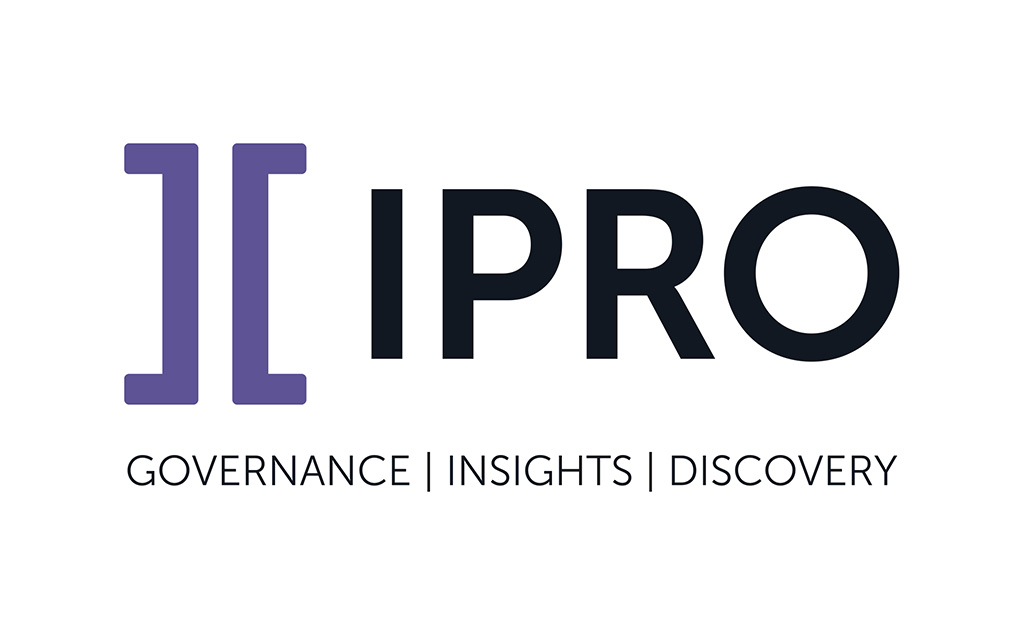
Written by Anita Bhuptani, Director of Sales at IPRO
Content is king. We’ve all heard that phrase before and with good reason. Information is power. It can generate revenue, attract and retain customers, resolve disputes, prove compliance and so much more. To realize these benefits, however, you must properly govern your organization’s data.
There are two types of information: structured and unstructured. Structured information you might find in a database or spreadsheet, within fixed fields and columns. It is more quantitative in nature. Unstructured information, on the other hand, is more qualitative and harder to process and analyze. Think of unstructured information in terms of files, documents, emails, texts, instant messages, etc. This information can be like the Wild West in many organizations. It is typically disorganized, unprotected and ungoverned. This can cause problems.
Think of an email, text or document containing customer personally identifiable information (PII) or protected health information (PHI). That sensitive data needs to be secured and protected from unauthorized access even from staff. Consider all the files and communication a business needs to aggregate, organize, and analyze in a legal eDiscovery situation to present in a court case. If improperly archived and ungoverned, this information can take hundreds/thousands of hours and cost hundreds of thousands of dollars to prepare.
Gartner defines information governance as “the specification of decision rights and an accountability framework to ensure appropriate behavior in the valuation, creation, storage, use, archiving, and deletion of information. It includes the processes, roles & policies, standards, and metrics that ensure the effective and efficient use of information in enabling an organization to achieve its goals.” Gartner also defines enterprise information archiving as a “focus on solutions for archiving user data, including email, IM, social media, files, SMS, and voice.”
Together, information governance and enterprise archiving present an attractive value proposition to any organization. With a combination of these systems, a company’s important unstructured information is carefully, securely, and intelligently stored, managed, analyzed, and accessed in a manner that adds value. This novel approach transforms unstructured information into a true business asset with a real, quantifiable return on investment (ROI).
Solving Data Compliance
Businesses in regulated industries (finance, healthcare, utility, insurance, etc.) as well as any organization that captures and stores personal information, must comply with certain industry and governmental regulations. In the United States, these laws can include FINRA (financial), HIPAA (healthcare), PCI-DSS (consumer) and several others. In the UK and Europe, GDPR was recently enacted to protect a customer’s personally identifiable information. All these stipulations – and others not mentioned – mandate how certain information/data must be captured, stored, shared, and retained.
The right solution can help bring governance to all the unstructured information within an organization that poses a risk of violating one of these laws.
Safeguarding Personal Information
Financial companies need to safeguard financial records. Healthcare companies need to safeguard PHI. Any company that accepts credit card payments needs to protect cardholder and other PII data. Many organizations have point solutions to help comply with regulations. Some employ specialized PCI-DSS software, for instance, to help protect cardholder data. Others deploy home-grown solutions to protect their sensitive data.
What is needed is a single, all-in-one software solution that protects all this information regardless of where it resides. By sufficiently protecting this information from falling into the wrong hands, a business can save thousands, hundreds of thousands or even millions of dollars by avoiding compliance infractions, costly litigation, and defecting customers.
Simplifying eDiscovery
The eDiscovery process can be quite complex and arduous, and many businesses hire an outside firm to facilitate the entire process. This expenditure can run into the hundreds of thousands of dollars, given the specialization eDiscovery firms have and the many hours they must spend searching through all your information – spanning your files, electronic communication, online collaboration systems, and so on.
Utilizing an all-in-one information archiving and discovery solution you can bring the entire eDiscovery process in-house and enable your entire legal team to perform eDiscovery, including legal supervisors, in-house legal counsel, board members, and case administrators. You will realize significant financial savings and be able to make faster decisions regarding litigation and settlement.
Protecting Your Reputation
We hear about big data breaches all the time and wonder if our data is secure. Many companies have large cyber-security departments that proactively detect threats and mitigate them. Whether your organization has such robust resources or not, you need information archiving and governance to protect customer and patient data as well as take control of all sensitive, compromised, or malicious data contained within employee emails. These dubious internal communications can leave your business just as vulnerable as cyber threats, and any affected customers/patients may sue you, defect to your competition, or damage your reputation by spreading negative comments on social media.
You need proactive, consistent measures to help to safeguard your organization. An all-in-one information archiving and data compliance solution blankets an organization with the necessary security and protection to avoid costly infractions, lawsuits, and scorned consumers. The bottom-line impact (in terms of savings and retained customers) could easily reach into the millions for a medium-to-large organization.


